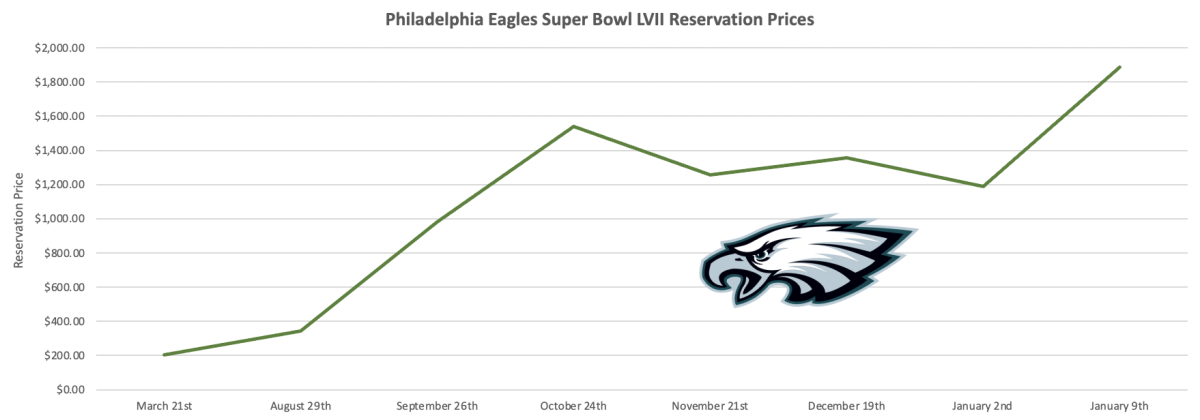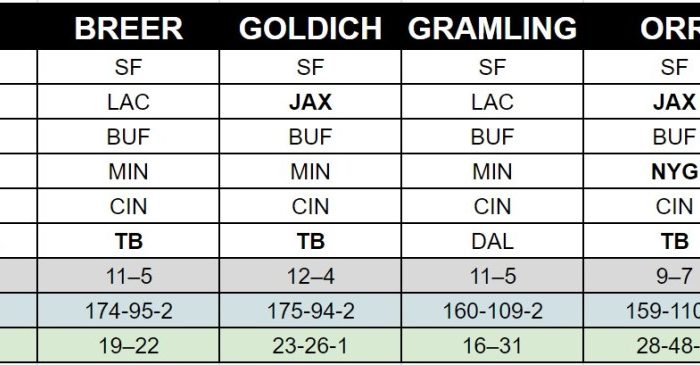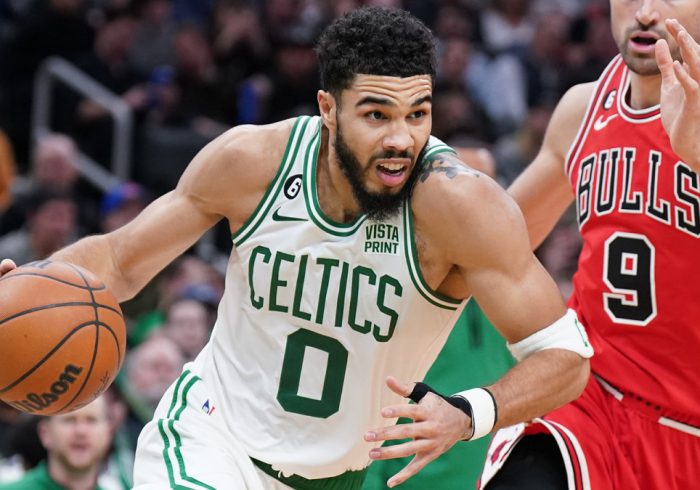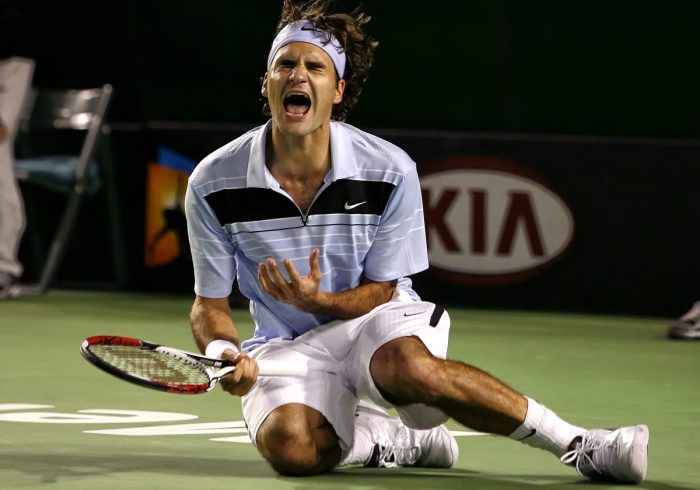Just four teams remain in the race for the Lombardi Trophy. Ahead of this weekend’s AFC and NFC championship games, it’s worth looking back on how each team got here! While three of the four teams also played in conference championship games last season, the paths through this season have been anything but linear. Between slow starts, QB changes and key midseason roster moves, here’s a look at the ups and downs that have brought all four teams to this moment, using insights from SI Tickets’ Super Bowl reservation system.
After making the playoffs last year and procuring some massive offseason additions, excitement was high about this Eagles team coming into the season. Still, few would have predicted the team’s 8–0 start that quickly vaulted them into the driver’s seat in the NFC.
The Eagles’ jump from a season ago came on the back of two main things: Growth from Jalen Hurts and key additions on both sides of the ball. Giving Hurts a top weapon like A.J. Brown at wide receiver helped unlock this Philadelphia offense, and Hurts accounted for 18 touchdowns in the season’s first eight games as a result. Meanwhile, critical acquisitions on defense like James Bradberry, C.J. Gardner-Johnson and Haason Reddick have made that unit one of the top 10 scoring defenses in football.
Throughout that 8–0 start, the Eagles Super Bowl ticket reservation price climbed from $344 all the way to over $1,500 as Philadelphia asserted itself as a clear favorite in the NFC. The second half of the season was slightly bumpier: Hurts missed two games with a shoulder injury, and the Eagles lost both games, but his return in Week 18 in a win over the Giants led to one last surge in the team’s reservation price to nearly $1,900 heading into the playoffs. The Eagles’ performance Saturday in a 38–7 win over the Giants to advance to the NFC Championship Game left little doubt about this team’s Super Bowl mettle, but getting through the Niners Sunday won’t be easy.
No one would describe this season for the 49ers as typical. San Francisco has gone through three different starting quarterbacks, started under .500 through seven games, then went on a run for the ages to leave them as one of the last two teams standing in the NFC.
In the preseason, the Niners were among the NFC’s favorites. After coming up short in the NFC championship game a season ago, the pieces were all in place for them to contend, and the hope was that swapping in a young talent like Trey Lance at quarterback would be the missing piece. But Lance lost his opener in soaked conditions in Chicago, then suffered a season-ending leg injury in Week 2. By the end of September, the team’s Super Bowl reservation price had dropped by nearly 50% from its offseason mark.
The Christian McCaffery addition in mid-October served as a turning point. San Francisco lost that weekend against the Chiefs, but hasn’t lost since. They even withstood the loss of Jimmy Garoppolo, who went down with a foot injury in Week 13 against the Dolphins. His replacement, rookie Brock Purdy, kept things on an upward trajectory despite his lack of experience. While he has been buoyed by having one of the best supporting casts in football, Purdy has made key plays on third down to help the Niners not miss a beat offensively.
Now, Purdy gets the chance to further etch his name in NFL lore by going from Mr. Irrelevant to the Super Bowl. Navigating that vaunted Eagles defense will be challenging, but Purdy has passed every test before this one. Why not the Niners?
Despite making last year’s Super Bowl, Cincinnati entered the regular season with the lowest Super Bowl reservation price of the four teams still standing. The Bengals’ inauspicious start didn’t inspire further confidence: Cincinnati was one of seven teams to start the season 0–2, with major offensive line woes and a disastrous five turnovers in Week 1 vs. the Steelers.
The Bengals haven’t lost since Halloween, but it took until an early December meeting with the Chiefs to prove Cincinnati was a legitimate Super Bowl contender again. Joe Burrow outdueled Patrick Mahomes, and the Bengals won on the road in one of the harshest environments in the NFL. Cincinnati’s Super Bowl reservation prices nearly tripled between November 21 and December 19, as the Bengals took over control of the AFC North and proved themselves against the AFC’s best teams.
Cincinnati didn’t play its best game during wild card weekend, surviving a Ravens team without Lamar Jackson but getting outgained in the process and only taking control late after Tyler Huntley’s fumble on the goal line was returned for a touchdown by Sam Hubbard. The performance couldn’t have been more different last weekend when the Bengals dominated the Bills in Buffalo from the opening kickoff to advance to a second straight AFC championship. And while beating Mahomes and the Chiefs again is quite the challenge, if anyone can pull it off, it’s Burrow and the Bengals.
Of our four teams still in contention, Kansas City has had the least ups and downs this season. For as long as Patrick Mahomes is under center, the Chiefs will be among the league’s top contenders, as evidenced by the team’s streak of five straight trips to the AFC championship since Mahomes became the starter.
Outside of a rather baffling early-season loss to the Colts, things have been remarkably steady all season long for the Chiefs. From last March until early January, Kansas City’s Super Bowl reservation price increased just 6% as Kansas City built its No. 1 seed case. They won 10 of their final 11 games to lock up that first-round bye, then handled the Jaguars with relative ease in the Divisional Round last weekend.
That sets up a matchup Sunday with the one team that has seemingly had Kansas City’s number lately: the Bengals. Not only did Cincinnati knock out the Chiefs in last year’s AFC championship game, but the Bengals also knocked off Kansas City at Arrowhead Stadium earlier this season. Will the Chiefs get revenge and send Mahomes to his third Super Bowl?



